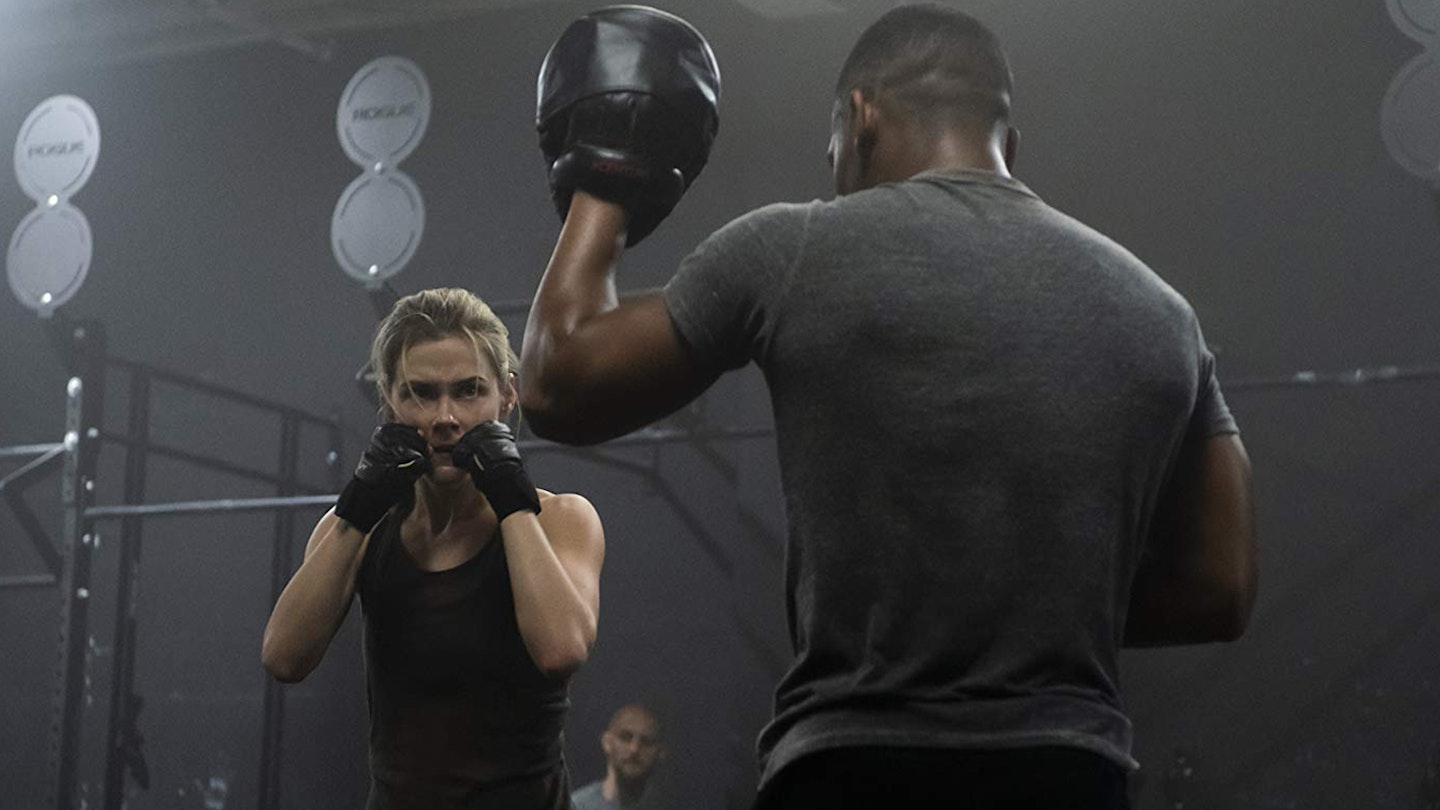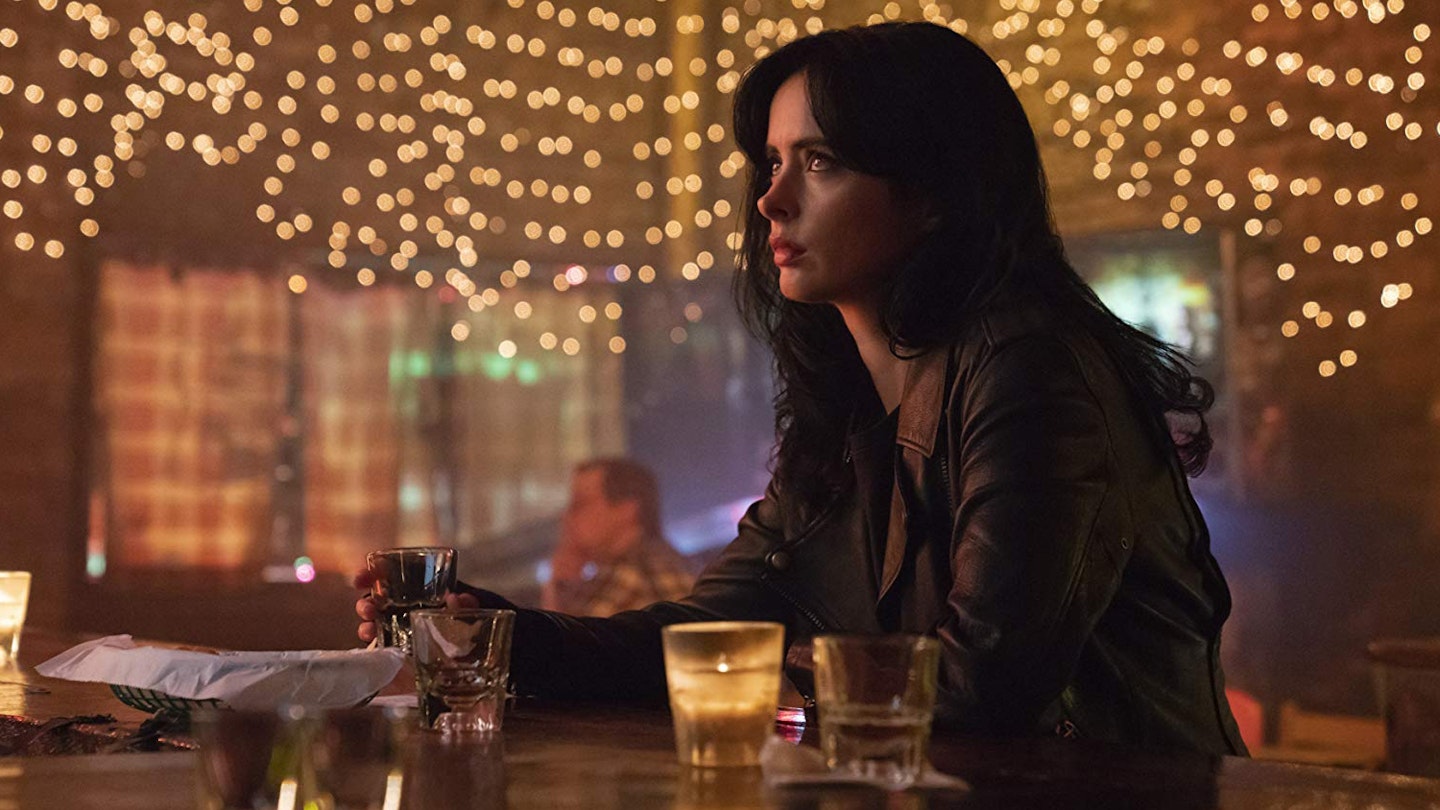Episodes viewed: 1-8
In a year that has already seen multiple pop culture properties come to their natural conclusions, it’s a shame that the end of the MCU’s Netflix tenure feels a little premature. Indeed, were it not for the fact that it was already in production when the cancellations began, Jessica Jones might have joined fellow street-level heroes Daredevil, Luke Cage, and Iron Fist in the trash pile months ago. Instead, this third helping of New York’s surliest private eye will mark the endgame for Marvel’s small screen Defenders, and thankfully – at least on the basis of the first 8 episodes – it looks to be wrapping things up on a dark, but satisfying note.
It takes a little while to establish its main plot – the first couple of hours are largely spent updating us on the status quo. A year after the events of last season, Jessica (Krysten Ritter) and Trish (Rachael Taylor) are still estranged, Malcolm (Eka Darville) is now working as a fixer for Jeri Hogarth (Carrie-Anne Moss), and Jessica’s latest fling Erik (Benjamin Walker) has the ability to detect evildoers, albeit with some serious side-effects.
By and large an enjoyable showcase of what we’ll miss about these shows.
One such villain is Gregory Salinger (Russian Doll’s Jeremy Bobb), and it’s with his arrival that the narrative starts to find its focus. While he doesn’t come with the personal baggage of Season 1’s Kilgrave, Salinger – a meticulous serial killer who thinks powered people are “cheaters” who didn’t earn their abilities – quickly proves himself to be a dangerous adversary, and Bobb is appropriately creepy in the role.
Just as engaging is the relationship between Jessica and Trish that forms the other focal point of the season. After being envious of her adopted sister’s powers for years, Trish finally gets some abilities of her own – her comic book alter-ego is Hellcat, and there are some clever nods to her original costume in Episode 2, directed by Ritter herself – and Taylor deserves credit for fully committing to everything the role asks of her. The show is at its best when both leading ladies are grappling with what it means to be a hero, and the complexities of their friendship helps set this series apart from its many counterparts.
Still, the main draw of this series remains the titular protagonist, and it’s difficult to imagine anyone else bringing the perfect combination of attitude and heart that Ritter does to Jones. In a similar way to Charlie Cox’s Matt Murdock and Vincent D’Onofrio’s Wilson Fisk, it’s the perfect marriage of actor and role.

As is often the case with these shows, the question of whether 13 episodes is too much once again feels valid, and there are multiple plot-extending contrivances and character decisions that frustrate as the season progresses. But from the gritty tone and weighty themes to the morally murky characters and great performances, Jessica Jones’ final season is by and large an enjoyable showcase of what we’ll miss about these shows as the Defendersverse comes to a close.
